This post may contain affiliate links. Please read our disclosures for more information.
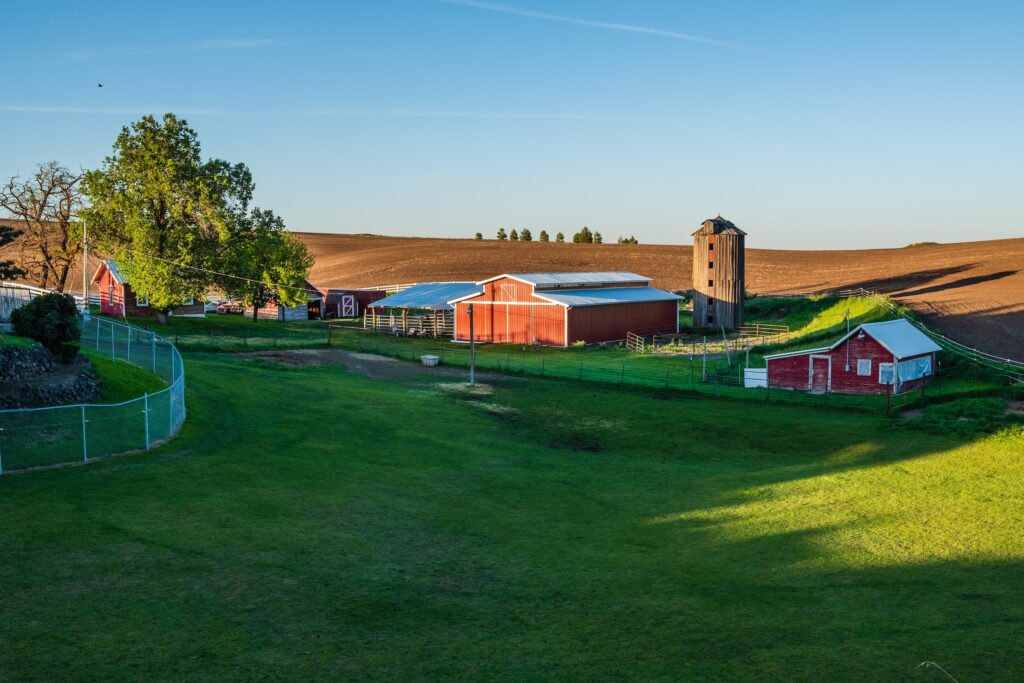
As you look deeper into the world of owning land and raising produce and livestock — i.e. farming or homesteading — you start to ask the question “what IS the difference between a homestead and a farm?”
It gets even more complicated because these are not the only two terms you’re going to come across.
Common terminology you’ll see used to define a place where livestock and/or produce is raised include:
- homestead
- hobby farm
- farm
- farmstead
So if you’re in the midst of asking if homesteading is right for you, now all of a sudden you’re wondering if you’re even right to call it homesteading!
Don’t worry; this article will compare the four terms above so you can figure out what you want to label your new adventure.
(But disclaimer: despite the end-game being slightly different, they are all typically interchangeable terms!)
Table of Contents
What’s The Difference Between A Homestead vs Farm vs Hobby Farm vs Farmstead?
Homestead
This is the “buzzword” you’ll see most commonly used, especially among people who are in the prepper crowd.
Homesteading is typically defined as simply a life of self-sufficiency. Most commonly this includes both raising livestock and growing a vegetable garden, at the minimum.
In addition, it tends to encompass actions that revolve around specific preparedness skills, such as:
- preserving food (canning produce, freezing, preserving food by dehydrating, etc)
- DIY/carpentry — many homesteaders are self-taught for many carpentry skills, since the need to repair livestock building or fencing is a common occurrence, among other reasons to know these skills!
- old-fashioned/lost skills — herbalism, making or repairing items via sewing, making homemade soaps, salves, and more are all commonly-found skills and activities among many homesteaders
The biggest thing to take away from this term is that a family that homesteads is in it primarily to live a self-sufficient life provide for as many of their needs as possible by themselves.
You will see that this term is really the foundation upon which the other terms build.
Farm
This is obviously a term that most people are the most familiar with. It tends to evoke images of either a big red barn and a barnyard full of animals, or a wide-open vista of acres upon acres of crops.
Honestly, a farm can be both of these things and then some.
Many farmers that do run acres and acres of crops also have essentially a homestead back at their residence.
However, the chickens, sheep, cow, and garden at their home may NOT be a part of what they call their “farm.” The reason for that is because they may have a business structure in place that protects these “homestead components” from being included in the farm business proper. If something should happen such that they were forced to close/sell the farm (ie crops and equipment), their home and yard, homestead animals, etc would not be included in the business assets in such a situation.
The primary and most commonly referenced feature of a true farm is that it generates money by selling products. In the example above, the acres of crops are the product, whereas the chickens, cow, etc at their homestead would not be part of the products.
Defining a farm by the fact that it produces income is the main distinguisher from a hobby farm as well, but more on that later in the article.
Farmstead
The term farmstead is a little bit of a gray area and it’s exactly what you think it is — a combination of the words “farm” and “homestead.”
This term essentially combines the two settings into one.
Many homesteaders today, in truth, would be more accurately referred to as “farmsteaders.” The reason for that is because they are generating an income with some homemade money from a variety of things grown, raised, or made right on their homestead. If they were not selling anything, they’d be a homestead. But when they take their multi-faceted operation and begin to sell even just the surplus, they’ve transitioned into the realm of farms.
Think of it this way: if you live in a city, and you own property out in the country that grows 100 acres of pumpkins to supply supermarkets every year for fall, and that’s all you do, you are without question running a farm.
If you instead live on a property out in the country and grow just an acre of pumpkins to sell to neighbors, on a roadside stand, at a farmers market, etc, AND you also sell fresh eggs, surplus from your garden, pasture-raised meat, and more, you’re living on a homestead but running it like a farmstead because you are using your homestead to generate an income stream.
Make sense? Good, let’s carry on.
Hobby Farm
This may perhaps be one of the worst terms to wrap your head around because by using the word farm you’d be inclined (by now) to jump to “oh it has income?” but you’d be wrong.
A hobby farm is literally what it sounds like: just a hobby.
Some people read, some canoe, some people play golf, etc; you get the picture — hobbies are activities done purely for relaxation and/or entertainment purposes. They are enjoyable, we do it because we like it, and there is zero pressure to be the best, make money from it or anything like that.
Many who call their place a hobby farm use that term because (for example) they have goats purely for pets, not for meat or milk like many homesteaders. They may acquire animals through rescue efforts, such as rescued horses or donkeys.
So someone who calls their property a hobby farm is NOT making money from it. If they are making money (more than just a few hundred bucks a year), it’s technically not a hobby anymore, and they’re using the wrong term.
Many people will use this term when they have, for example, just a couple of species of animals, no garden. and many still work full-time jobs.
Bonus Terminology: Farmette
This cute new(er) term seems to be reserved for exceptionally under-sized homesteads/farms.
We’re talking about trying to homestead on an acre, but still having a typical mix of the things you’d expect to find on a traditional and larger homestead — dairy animal(s), meat animals, chickens, vegetable garden, etc.
The size of the property is very loosely defined and it’s really up to the person who owns it as to whether they want to call their place a farmette or not. Some people consider a farmette 5 acres or less, and some people may call a 10-acre farm a farmette because it’s running a major turnaround in marketable products but its size is a fraction of what you’d expect it to be for what they produce.
While the people running a farmette DO earn an income from it, they’re most commonly doing it more as a pure side hustle than a fully-focused way of living. While it does dictate their lifestyle, it is not to the same level of preservation/preparation/self-sufficiency as a homestead, farmstead, or farm.
Does It Really Matter If I Call My Property A Homestead vs Farm?
In casual conversation: no. But there are a few areas where you need to carefully consider not just what you call it but what you do on your land.
Taxes
When it comes to how you file your taxes,* yes it matters what your place is.
If you’re making only a few hundred dollars per year from your farm — like only selling a dozen eggs per week to a neighbor at $5/dozen — you can call yourself whatever you want and not worry about tax implications* because they’ll be minimal and likely negligible.
If you’re generating an income above what the IRS considers hobby level (visit their website to verify the amount), then you’ll need to be structuring your tax filings very differently.
And if you’re generating a considerable income from your property (think full-time job/liveable income), then you’d be wise to form a separate business entity for your farm to protect your personal property.
*We are not tax professionals and these statements are for informational purposes only. We strongly advise you to consult an actual tax professional even if you think you’re just homesteading, just to be safe.
Zoning
This is a hairy topic because many people in this lifestyle think the government should step out of their business and let them do as they wish with their land. While that’s a valid sentiment, that doesn’t mean that acting outside of zoning regulations isn’t still going to get you fined.
Your local town or county may have codes/laws in place that allow you or don’t allow you to have livestock, for example. Is there a limit on how many you can have? Is there a size minimum for acreage before you’re allowed to engage in agricultural activities such as homesteading?
Don’t fret if that’s the case — there may be processes in place to file for a permit/variance/special appeal to see if you can get permission to do something “illegal” on your land. Just know that it can be time-consuming, costly, and a complete pain in the butt.
(Some homes — typically urban homes or suburban homes in an HOA — may not even be allowed a vegetable garden without express permission!)
Let’s assume you’ve got plenty of land in an area where you can definitely do just about whatever you want, agriculture-wise, on your land.
Are you allowed to run a business out of your home and NOT be in violation of your local zoning laws? In our town, as an example, we are just fine to run our farm as a business and sell products. It’s if we hired someone to come help work or run the farm where we now need a special use permit because we need someone who does not live on-premises to run said business.
Insurance
Fun fact: not all homeowners insurance policies are created equal.
Many rural-tailored homeowners policies are just fine to cover your home, your many-acre property, and even your livestock and outbuildings.
But they are for HOME protection, not businesses. If you are truly JUST homesteading for yourself, you should be fine.
If you are working to turn your homestead into a farmstead, however, then you’re possibly going to invalidate your policy by selling products off your farm.
In this situation, you’ll need to get a separate “farm owner’s policy” at the minimum, but you might go so far as to set up an LLC for your farmstead/farm* for an extra layer of protection.
*That is a much more complex process and we cannot stress enough that you NEED to consult with an attorney who is knowledgeable in this area to make sure you’re doing what’s right and best for you and your goals and assets.
Final Thoughts On Homestead vs Farm vs Hobby Farm vs Farmstead
As you can see, these terms are for the most part interchangeable. If you want to refer to your homestead as a “farm” in normal conversation — go for it. Heck, if you want to call your farmstead a “farmette,” just because you think the term is cute, then enjoy!
Where the terminology difference really matters is when it comes down to the legal, business, and financial side of things. You’ll need to consider an operating budget very differently on a true farm as compared to on a homestead — the business needs to make the purchases for the business, not you.
Knowing the nuances of these different terms also helps you define what you want to get out of your land as you build this dream. You’ll be able to make more educated decisions about what type of property you’d want to buy, how you’ll use it, when and how to start marketing products you’ll sell, and you’ll also know where to start looking for support in various areas of your life.
Regardless of which term most applies to your life, just remember to focus on high-quality production more than quantity, and on enjoying the life you’re choosing to live.
There is no question that this life is rewarding. Homesteading is what you make of it, and the sky’s the limit.
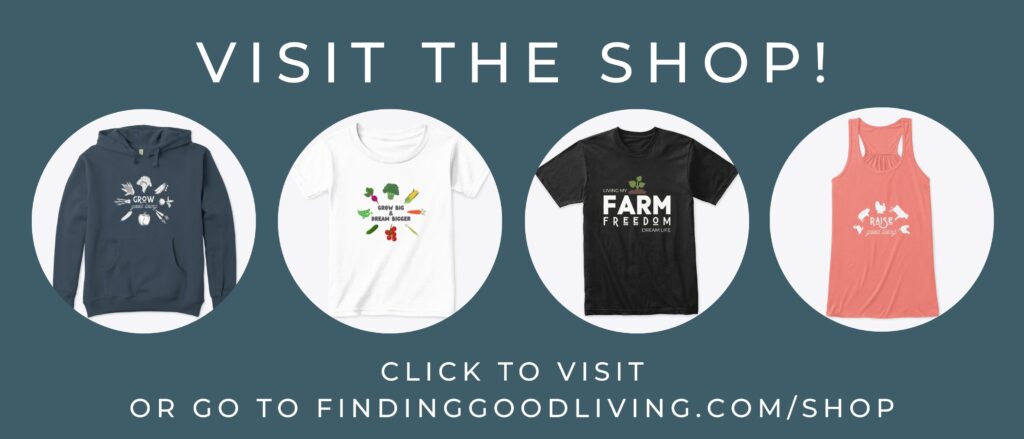

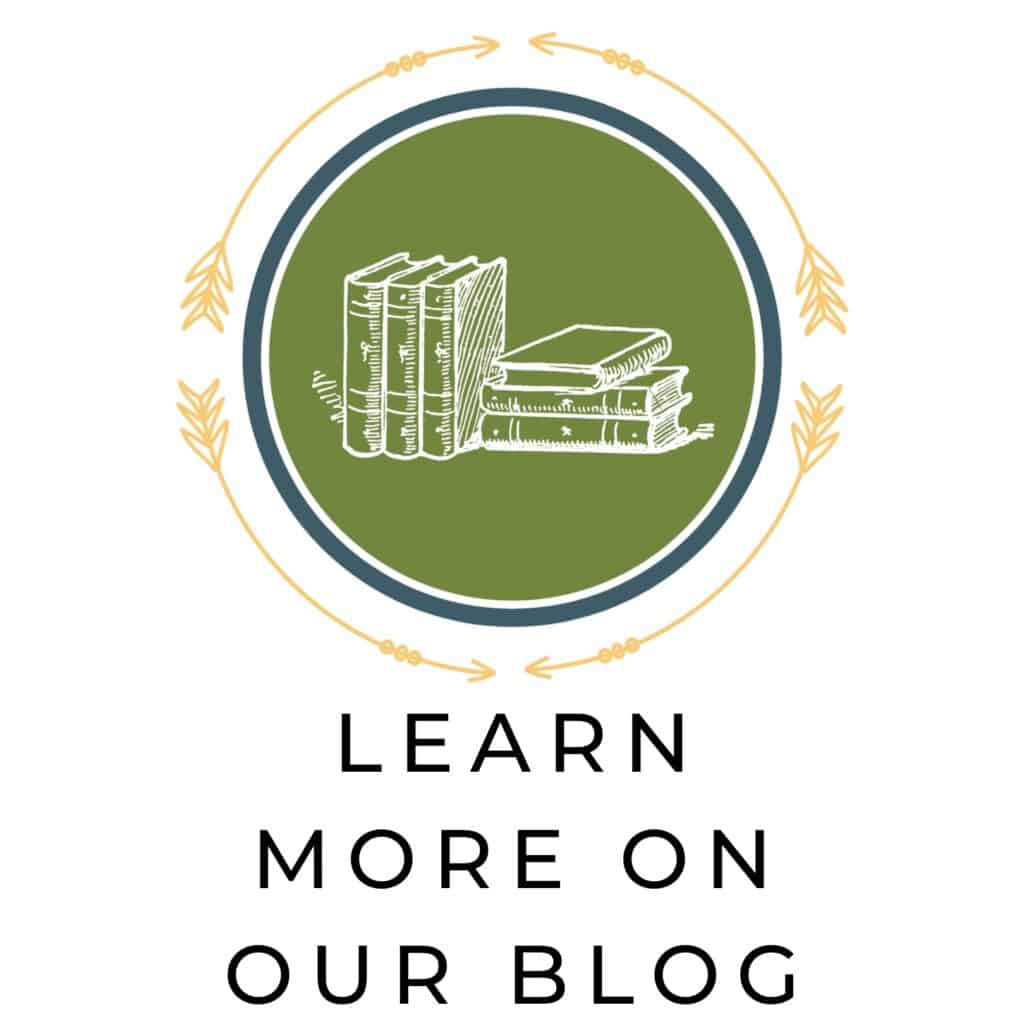

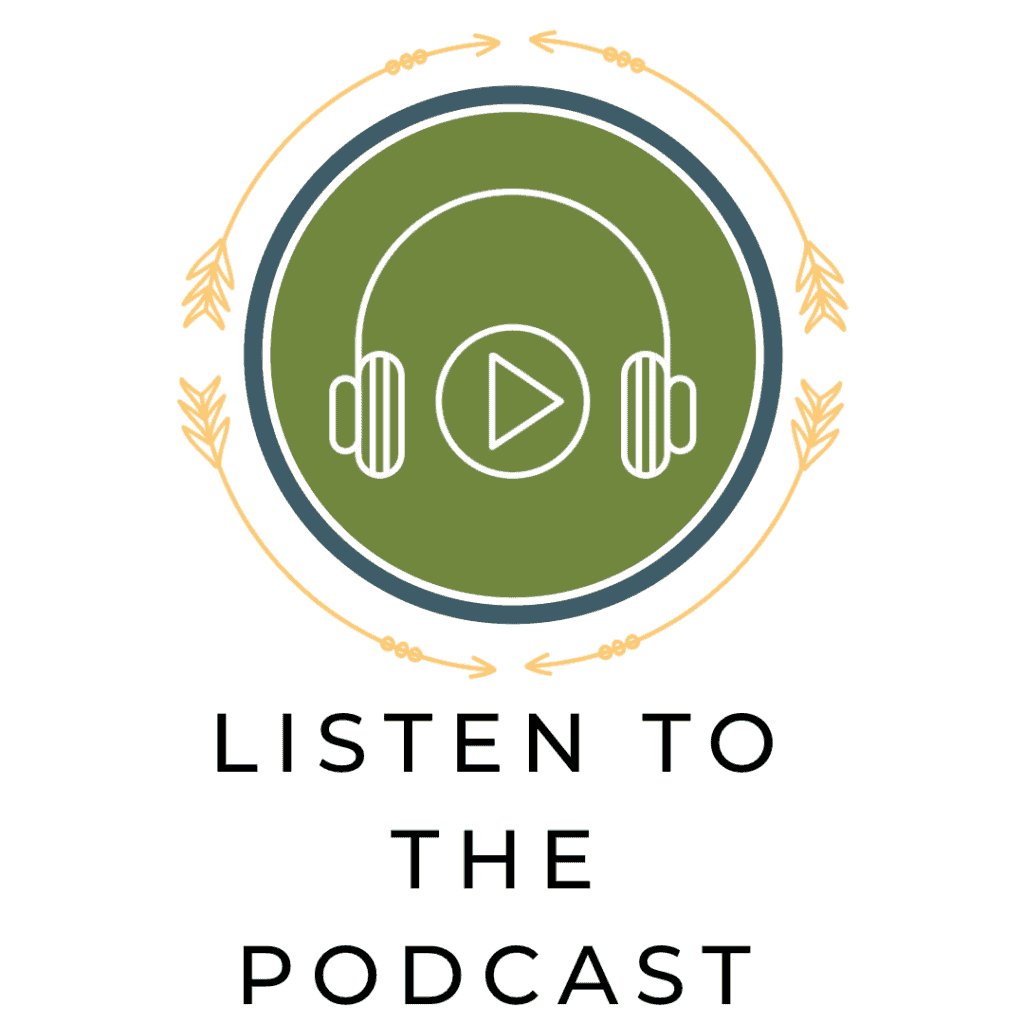
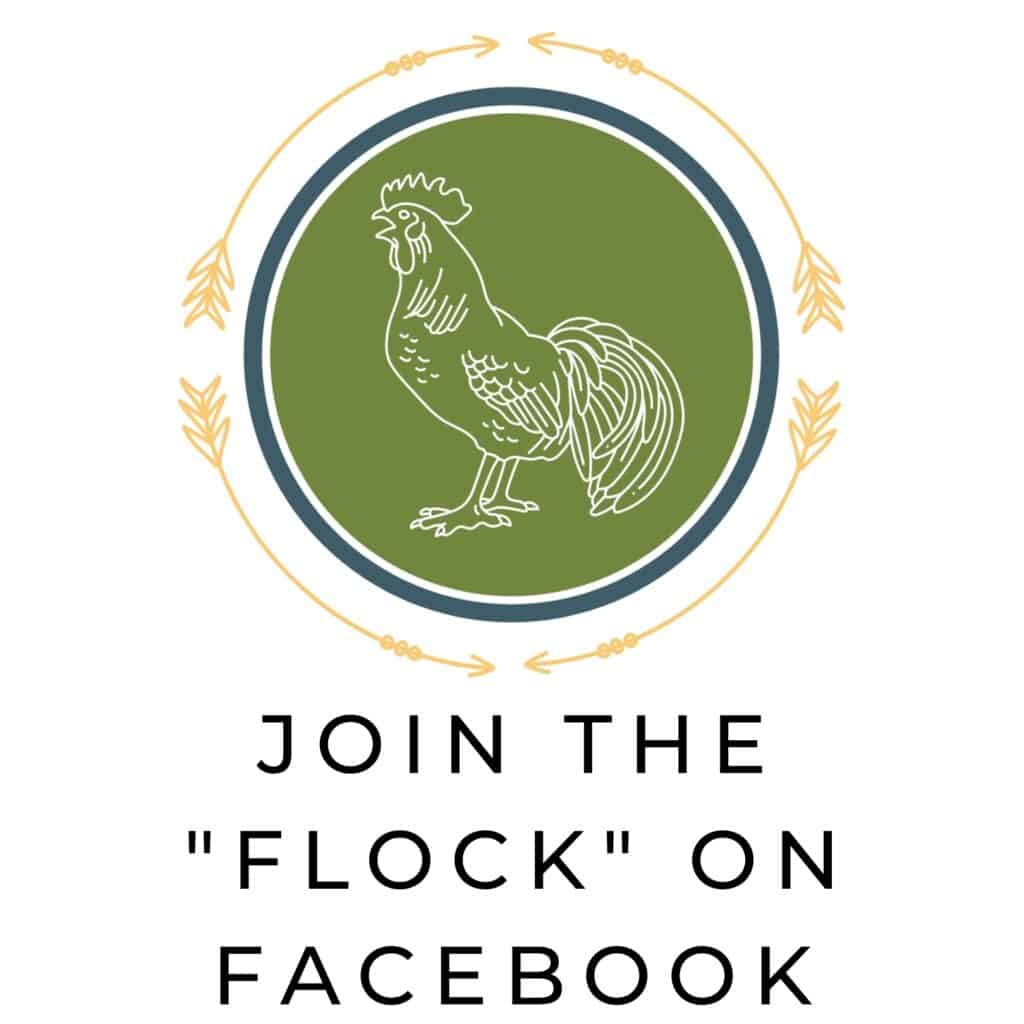
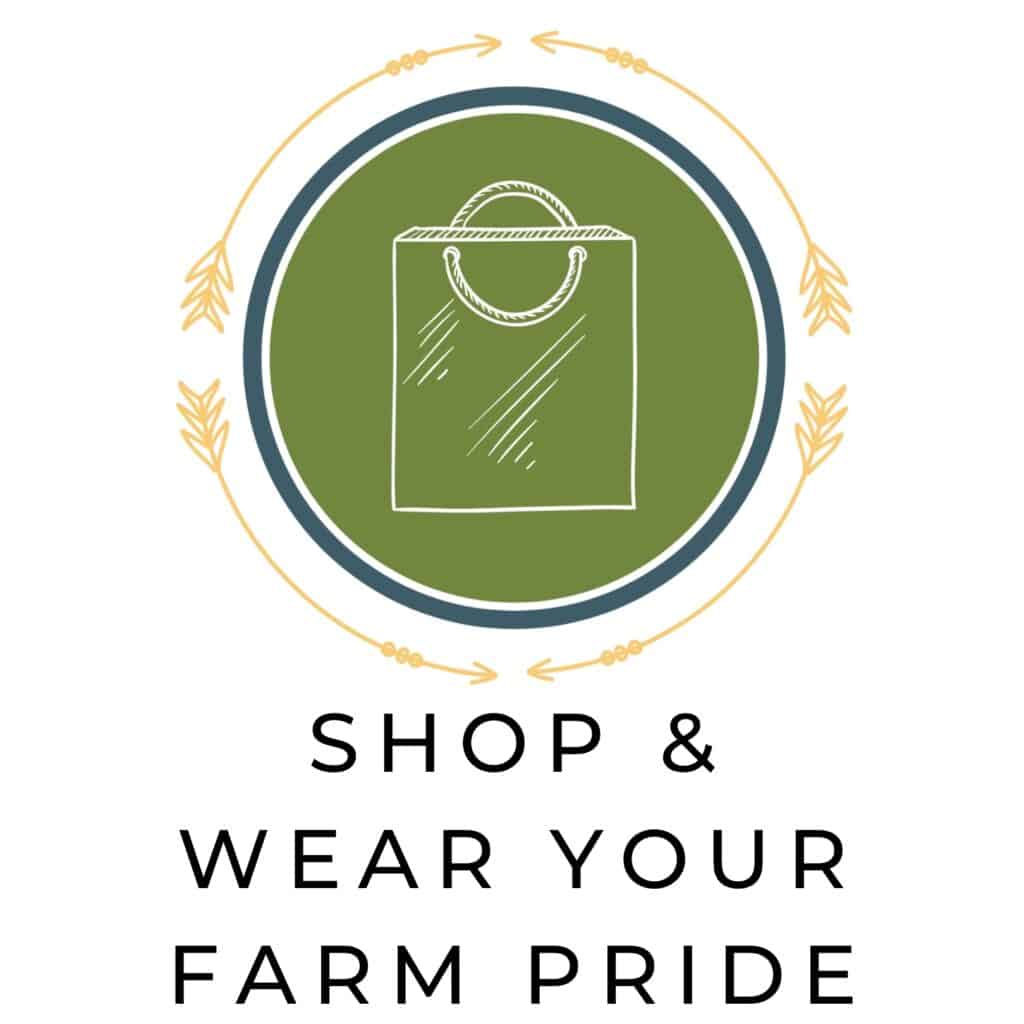
Leave a Reply